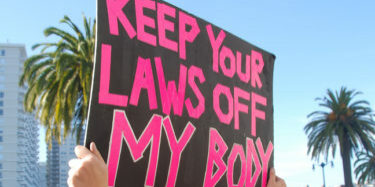The system behind abortion: Planned Parenthood’s dehumanizing rhetoric

But the ‘marginalized’, the ‘vulnerable’, the ‘voiceless’: where else but the womb are such descriptors more readily or easily applied? The womb is a microcosm for the world: the conditions on which we welcome the unborn will determine the atmosphere by which we welcome anyone else into our lives. Do they look like us? Do they allow us the status we wish for ourselves? Do they drain our resources and inhibit our desires for our own life? Do they make us uncomfortable? Do they demand the sacrifice of our own bodies for their welfare and well-being? For many women who are in danger of seeking an abortion, pregnancy feels like the end of their dreams, their hopes, and their futures. For all women, it requires a level of sacrifice and care which I, as a male, will never know and can never imagine. But so much moreso the wrong that obscures their gift to the world by reducing the humans bear to “fetal tissue.” And so much moreso our need not to spurn such women, but to welcome, support, and extend our care and concern to them. They are victims of the spirit of our age, if anyone is, and no amount of working for the ‘greater good’ can meaningfully overcome the unsettled bifurcation such a trauma must induce.
It is for that reason, then, that in this case our outrage should be directed toward the research regime that depends upon dehumanizing members of our own species in order to treat them as research products, the funding sources for Planned Parenthood, and the regulatory regime that make these evils possible. Yes, to stop such a program we would have to say no to the “possibility of what research can offer,” or at least research that uses the tissue from those who cannot consent to the process. But limits are the mother of invention, and while denying scientists access to fetal tissue may slow down their work, our country’s complicity in torture should have made us by now well aware of the kinds of moral wrongs that arise under the banner of urgency and necessity. Those are our laws that have enabled this practice: they represent us as a people. And as Ben Domenech has put it, “We must answer the obvious questions. What type of nation does this? Are we that type of nation? And: Do we want to be?”



